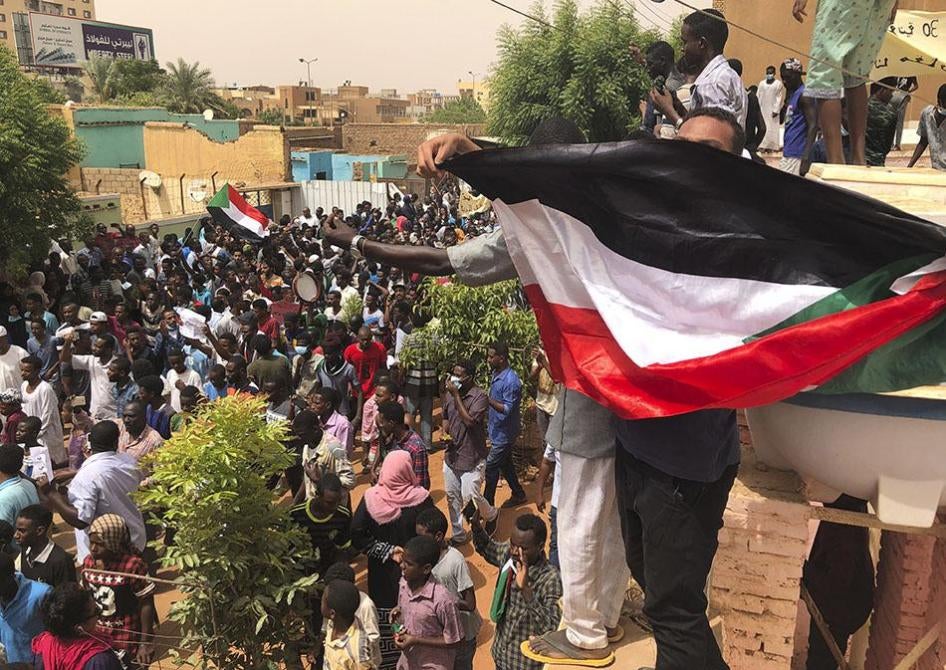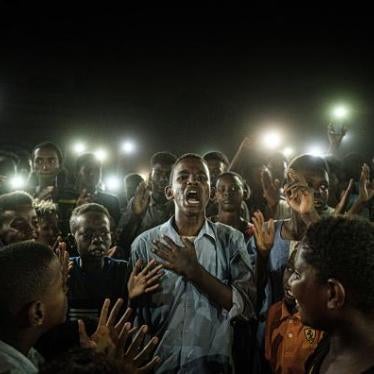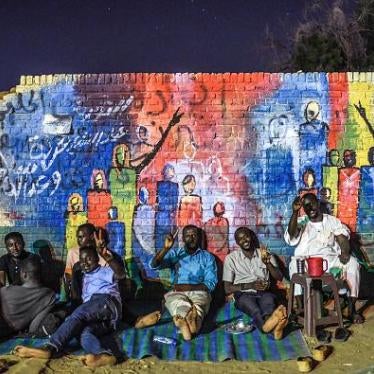On a hot May afternoon in Khartoum, less than a month after the ouster of former Sudanese president Omar Hassan al-Bashir, I met a 29-year-old college graduate at a tent that served as a base for Darfuri protesters near the army headquarters. The protesters had vowed to stay until the military leaders who took over when Bashir stepped down transferred power to civilian rulers.
“I am worried that political compromises [by the military] would lead to a situation of, ‘Let’s move on,’” he told me. “Every single one of us here at the sit-in has a story with [the Bashir regime], and their stories must be heard. They have to see justice served.”
Months later, the question of justice in Sudan remains.
Tensions were already rising fast in May, with military leaders trying to break up the sit-in and deploying the feared Rapid Support Forces, who shot live ammunition at protesters. On June 3, they attacked the sit-in and dispersed all the protesters. On that bloody day and the ones that followed, more than 120 people were killed, hundreds injured and many raped.
The protesters continued to demonstrate for civilian rule, despite another violent crackdown on June 30. Finally, on Aug. 17, military and civilian leaders agreed on a transitional power-sharing government for three years, followed by elections. Though far from perfect, the agreement made it seem that the protesters’ demands had been heard.
As one of his first acts as prime minister, Abdalla Hamdok met with families of the protesters who were killed. A month later, he established an investigation committee into the violence on June 3, which the power-sharing agreement mandated. He has since named the members, and in October the new attorney general said the committee would have prosecutorial powers.
But the families of victims and rights groups have rightly raised concerns about the long delays in setting up the committee, its limited mandate, its independence and the members’ lack of expertise, especially regarding sexual violence cases. It remains to be seen whether this committee will get the expertise, legal powers and independence it needs to function in line with basic international standards.
Sudan’s transitional government faces many challenges. The power-sharing agreement does not dismantle the power structures inherited from the old regime. The same military and national security institutions that were once Bashir’s tools of oppression still exist. And the agreement puts the military members in control for the first 21 months, including Rapid Support Forces leader Mohamed Hamdan Dagalo, or “Hemedti.”
These days, many refer to Hemedti as Sudan’s de facto ruler. He stands implicated in a long list of abuses. The forces under his command committed grave crimes in Darfur, Southern Kordofan and Blue Nile, including burning and pillaging civilian property and raping women and girls in brutal counter-insurgency operations.
He has successfully evaded accountability by putting himself and his troops at the center of complex local, regional and global dynamics. His forces fought in Yemen alongside Saudis and Emiratis, and Hemedti has curried favor among the gulf states. He also claims that his forces combat illegal migration, as part of the European Union’s migration management program. If that is true, E.U. funding is going to abusive forces.
Hemedti denied authorizing the June 3 attack, blaming infiltrators. The military leaders at the time admitted “mistakes.” An investigation by the former attorney general, widely rejected by protesters, blamed a handful of “rogue” officers.
But video evidence overwhelming shows forces in Rapid Support Forces uniforms attacking and abusing protesters, physically and verbally. The forces took their time killing, burning and beating protesters in front of the army headquarters, with no protection for the fleeing panicked protesters. Scores of protesters remain missing.
The Troika countries — the United States, Britain and Norway, which helped with the power-sharing deal — along with the European Union and the African Union, all sent strong messages condemning the June 3 attack and stressed the importance of holding those responsible to account.
Yet, almost five months on, the transitional government has made little concrete progress and the international community — especially donor governments — has gone quiet. They should urgently throw support behind justice and accountability, the cornerstone for the envisioned transition. To this end, they should adopt human rights benchmarks in their dealings with Sudan’s new rulers and find every opportunity to remind the government, especially its military component, of what is at stake.
Meanwhile, victims’ families continue to demand justice. If the transitional government wants to keep its promises, it should revise the investigation committee’s mandate, ensure its independence, listen to the families’ concerns and seek international and regional expertise. To do otherwise will just confirm my young friend’s worst fears: that the country’s leaders will say “let’s move on” and leave old wounds to fester. That’s not an outcome Sudan and its international partners should allow.









